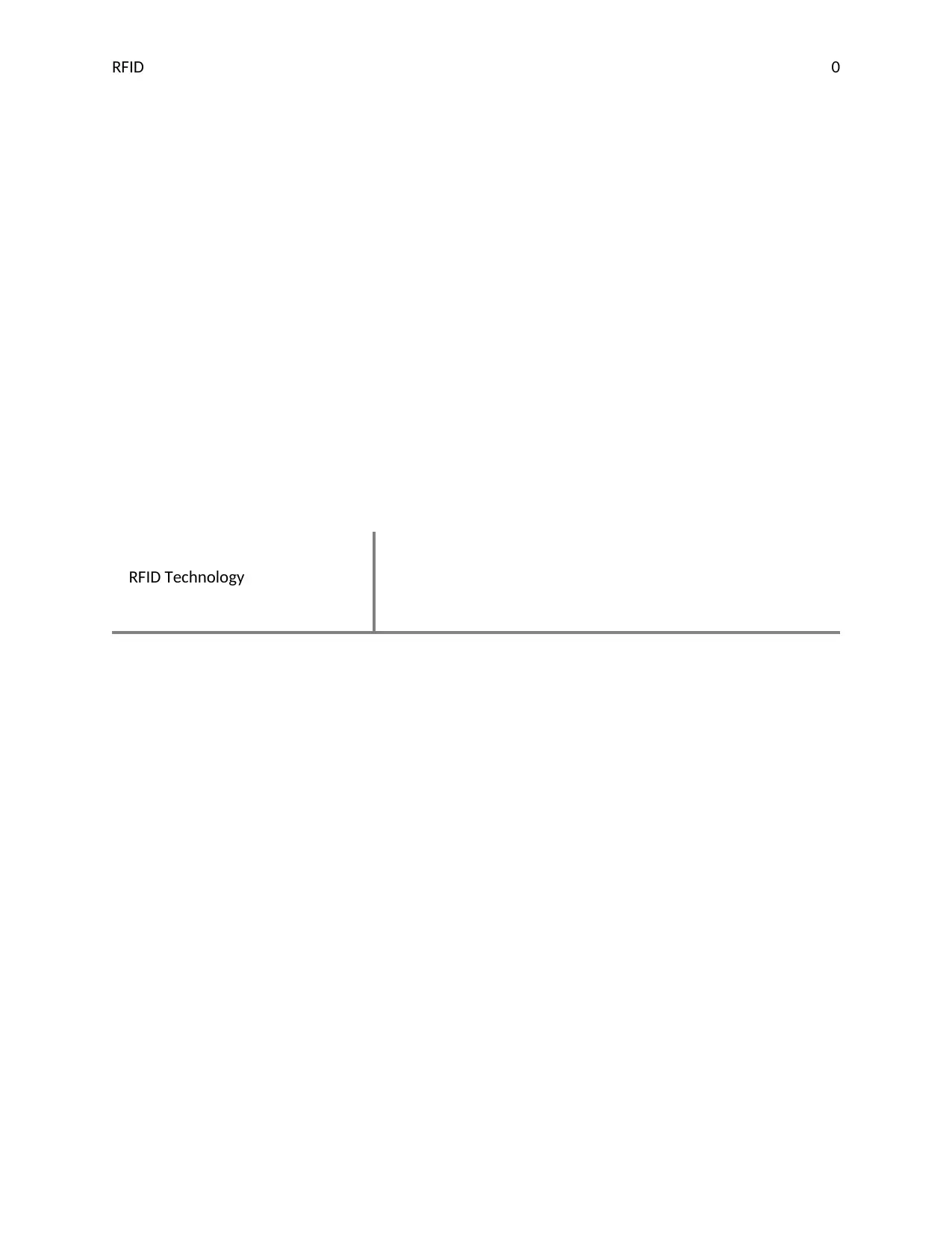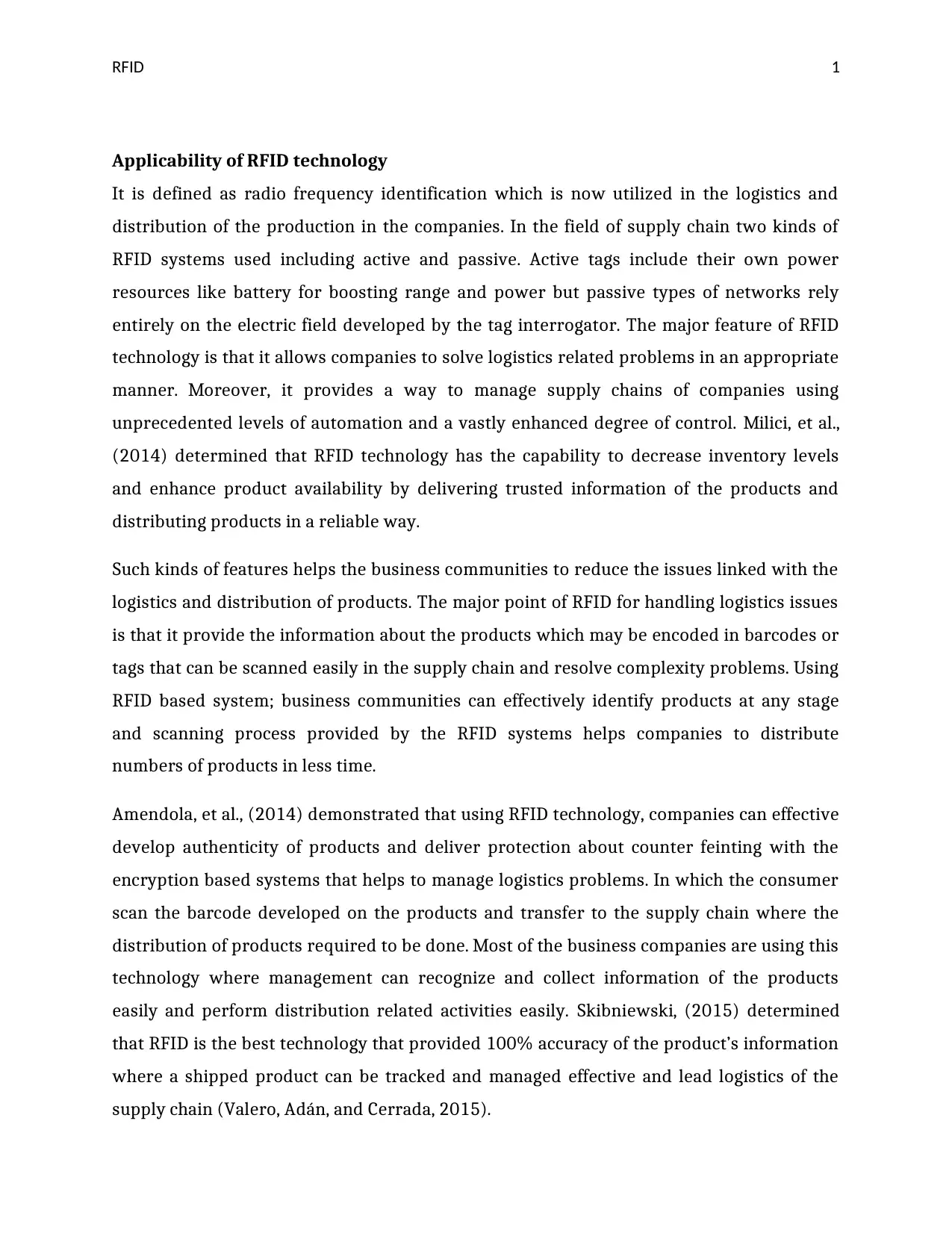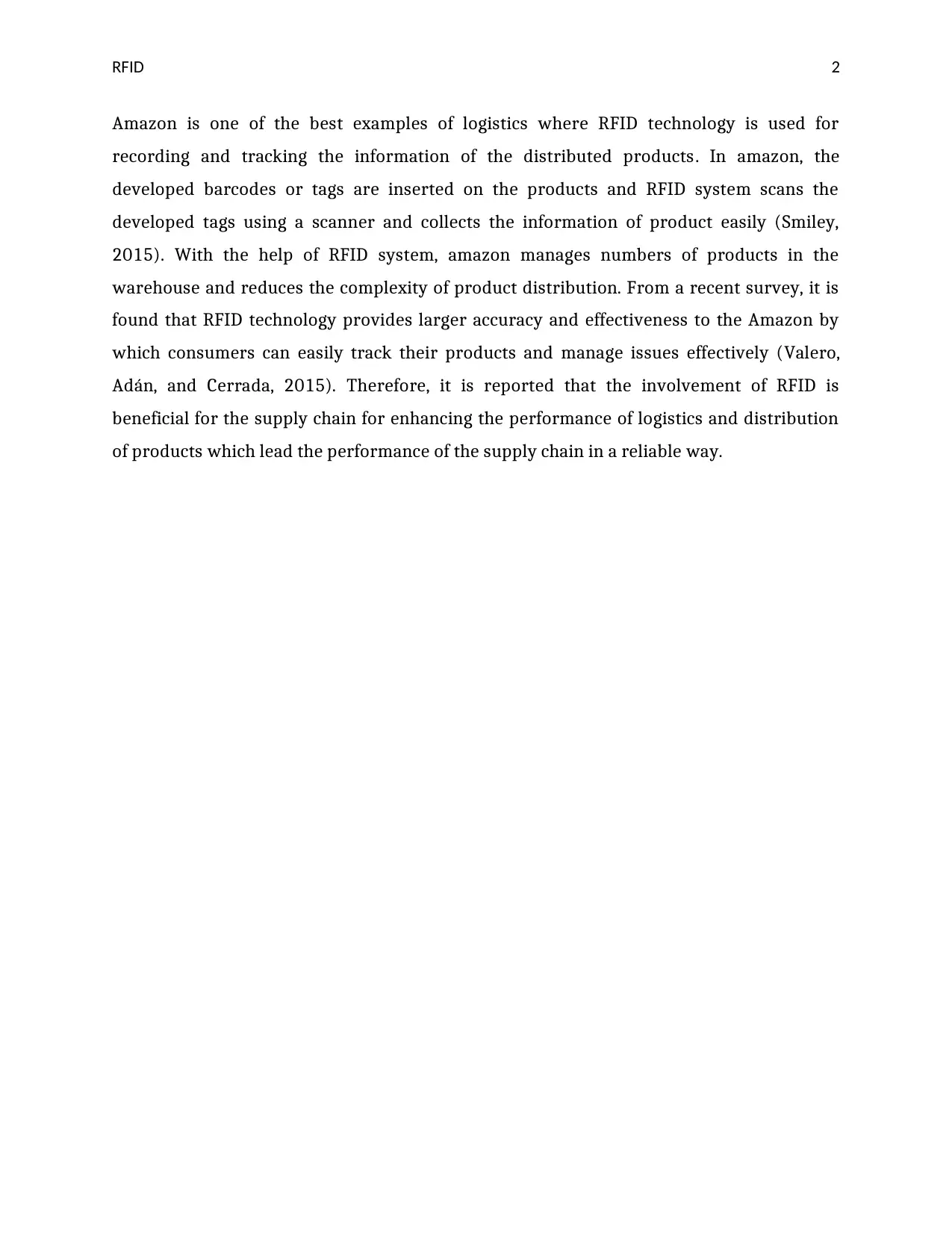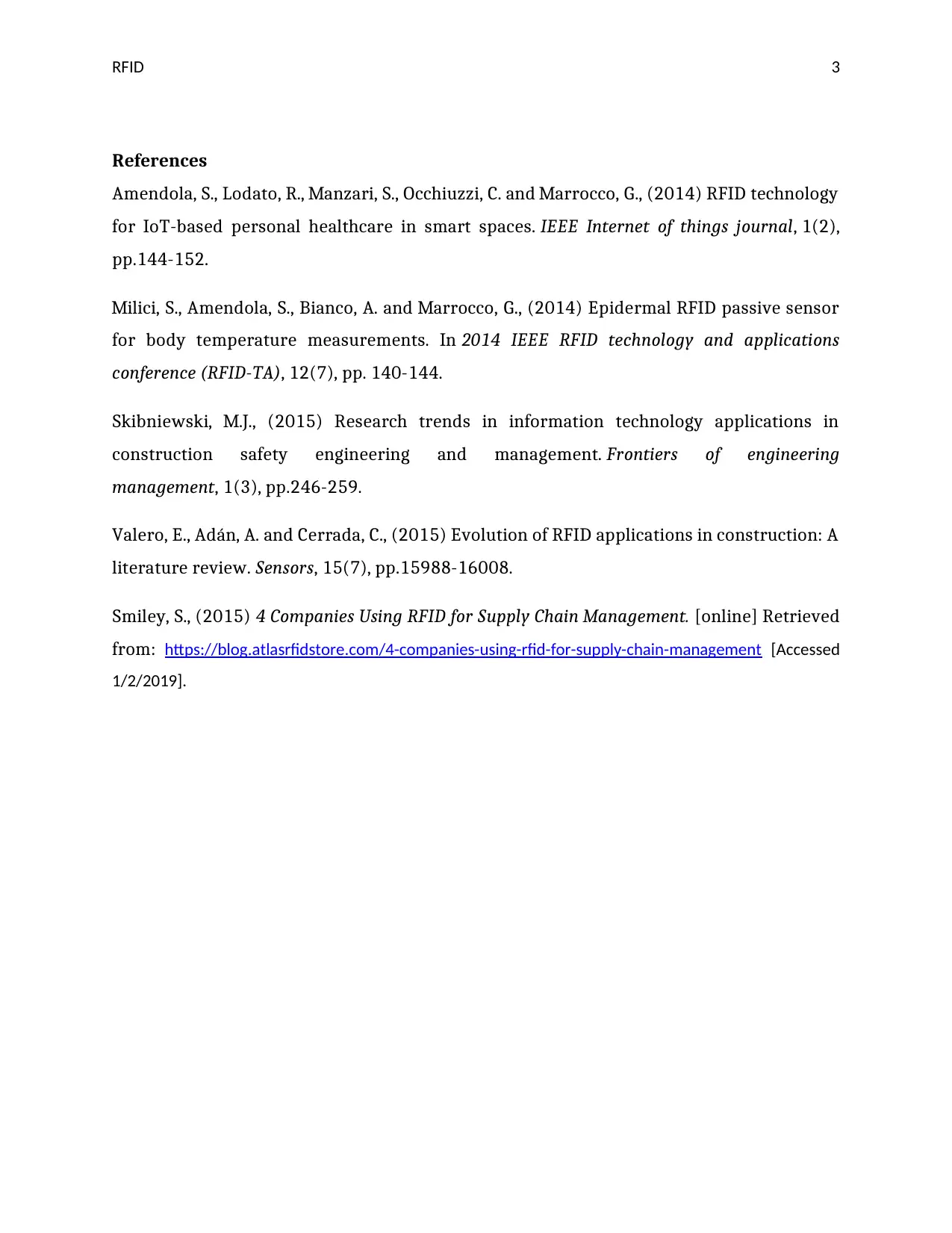An Analysis of RFID Technology and Its Logistics Applications
VerifiedAdded on 2022/08/18
|4
|761
|14
Report
AI Summary
This report delves into the application of Radio Frequency Identification (RFID) technology within the realm of logistics and supply chain management. It defines RFID, differentiating between active and passive systems, and highlights its crucial role in addressing logistics-related challenges. The report emphasizes RFID's ability to enhance automation and control, leading to reduced inventory levels and improved product availability. It explores how RFID facilitates effective product identification and tracking throughout the supply chain, enabling businesses to manage and distribute products efficiently. The report also examines the use of RFID in ensuring product authenticity and combating counterfeiting, as well as its successful implementation by companies like Amazon. It concludes by underscoring the benefits of RFID in improving logistics performance and streamlining product distribution.
1 out of 4










![[object Object]](/_next/static/media/star-bottom.7253800d.svg)